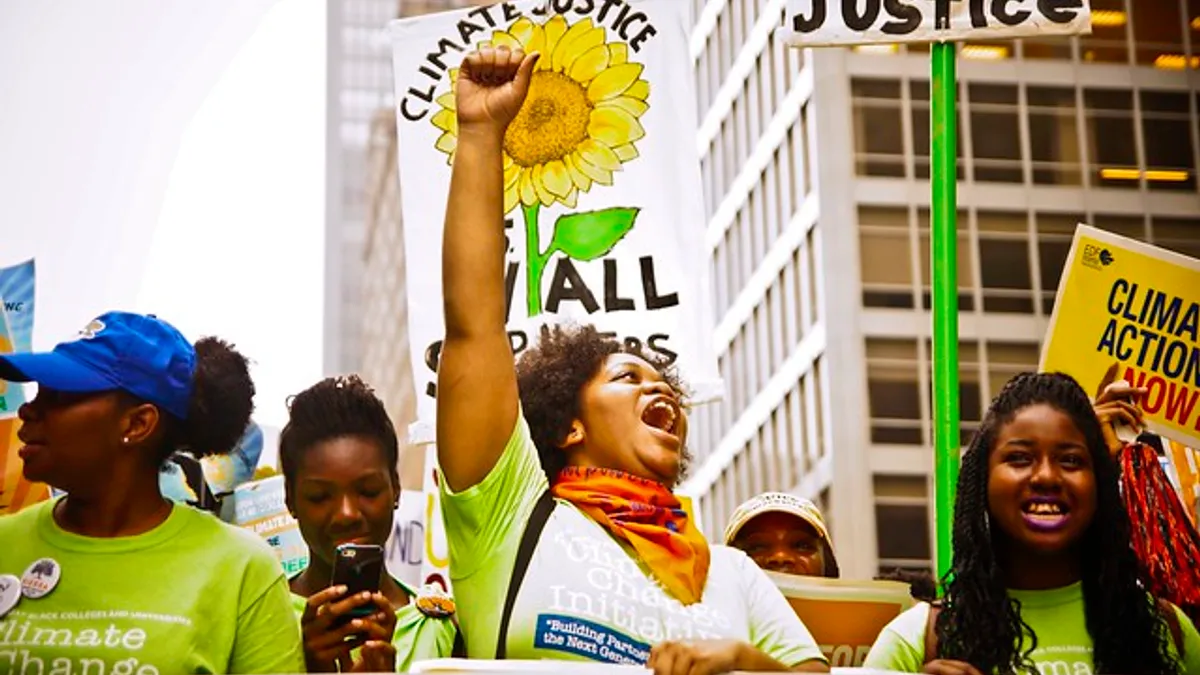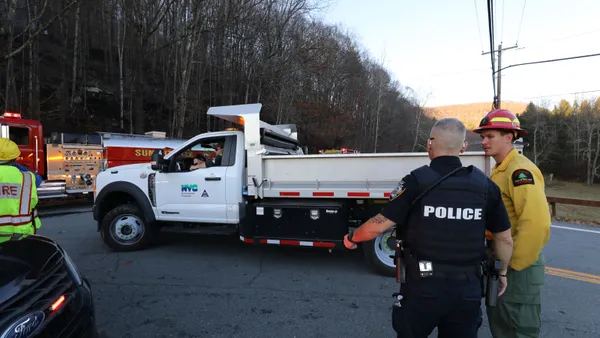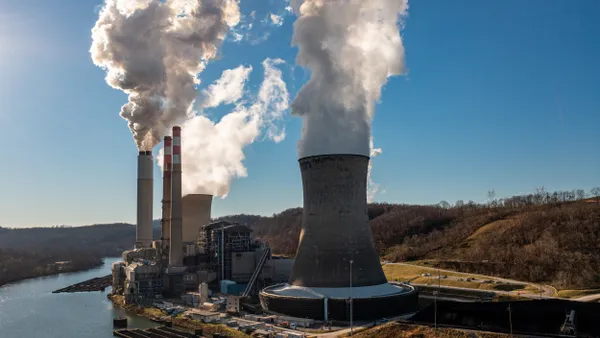Dive Brief:
- The New York City Council approved a resolution on Wednesday declaring a climate emergency in the city and calling for "an immediate emergency mobilization" to correct its impact. The measure was passed by a voice vote.
- The resolution is symbolic and does not require any action, but sponsors said it sends a signal about the urgency of action.
- New York is the largest U.S. city to pass a "climate emergency" resolution. At least 17 other U.S. cities have done so, including San Francisco, Oakland, CA and Hoboken, NJ, according to HuffPost. More than 650 governments in 15 countries have similarly declared climate emergencies, as have four countries: the United Kingdom, Ireland, Canada and France.
Dive Insight:
Council member Ben Kallos said in a statement that the resolution is a reminder that "New York must take bold steps in protecting its citizens, or we will suffer more sea level rise, more climate injustices and more Hurricane Sandy’s."
Even though this resolution does not carry any policy changes or a requirement for Mayor Bill de Blasio's signature, this move from the nation’s largest city, which represents the world’s 11th-largest economy, is viewed as a powerful message that can elevate a national discussion — especially with de Blasio running for president.
Rory Varrato, a spokesperson for the environmental group Extinction Rebellion, said in a statement the declaration is a "move toward speaking truthfully in public about the undeniable empirical reality of global climate breakdown."
As officials in the Trump administration have rolled back environmental measures and denied the impacts of climate change — Vice President Mike Pence refused to say that climate change was a threat in a recent CNN interview— cities and states have emerged as the leaders on climate action. That’s been especially true in the wake of the proposed national Green New Deal, which has spurred cities to adopt their own sweeping emission reduction and clean energy goals.
New York has been a leader. The city recently passed the "Climate Mobilization Act,” a combination of measures that includes emissions cuts from large buildings and puts the city on pace to shut down 24 gas-fired power plants.
This month, the state legislature approved a measure that requires the state to cut emissions 85% below 1990 levels by 2050, and offset the remaining 15% of emissions through measures like planting trees and removing carbon dioxide from the air.










